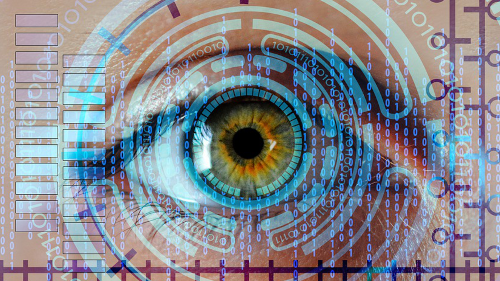Posts Tagged ‘Technological Innovation’
Central Banks Worldwide Are Planning To Launch A Digital Currency.
According to a new research from the Bank of International Settlements, over 90% of national central banks aim to provide their own central bank digital currencies (CBDC) to the general public (BIS). In the autumn of 2021, the BIS polled 81 central banks on their involvement in CBDC work, as well as their motives and plans for CBDC issuance. According to the research, a record number of banks are working on CBDC in “some form,” with a growing number in the “advanced phases” of investigating digital currency. “Central banks actively involved in some sort of CBDC activities increased to 90% in the last year,” the authors said. “According to the survey results, central banks are particularly interested in retail CBDCs: all central banks working on CBDCs either look at wholesale and retail, or focus primarily on a retail CBDC.” Sixty-two…
Read MoreUK Microchip Implant Firm Now Providing Credit/Debit Payments. Technology Can Only Go So Far Before Prophecy Intervenes.
Hand swipe payments have been taken to the next level by a British microchip implant business, raising concerns about end times prophesies. Human implantable microchips have gone a long way since the first one was implanted in 1998. The technology became commercially accessible in the recent decade, allowing enabling hand swipe credit card payments. Anyone with a microchip implant may use their credit card to pay for anything by just placing their hand with the chip close to the scanner, and the payment will be completed. According to the BBC, Walletmor, a British-Polish company, made this technology accessible for purchase in 2021. The microchip implant may be used to pay for any transaction “anywhere contactless payments are accepted,” according to Wojtek Paprota, the company’s founder and CEO. The microchip implant developed by Walletmor is so small and light that it weighs…
Read MorePrivate Data Leaks Occurring All Over The Internet According To A Recent University Study.
According to a May 12 article in Fortune, researchers from KU Leuven, Radboud University, and the University of Lausanne conducted a study and discovered that tens of thousands of websites captured—without permission—every word typed into an online form, even if users left the site without submitting their information. “Given its scope, intrusiveness, and unexpected consequences,” the study’s authors said, “the privacy problem we analyze warrants additional attention from browser makers, privacy tool developers, and data protection organizations.” While typing out their email address on a website, establishing an account, purchasing a ticket, or subscribing to a newsletter, many people were mistakenly made to believe that their personal data was safe. According to Fortune, the combined university research looked at over 100,000 websites. The study teams constructed fictitious software profiles that imitated a real user who visited hundreds of websites and…
Read MoreCanadian Mounted Police Are Getting Away With Misusing AI powered Facial Recognition Technology.
The federal government is seeking a court to deny a Quebec photographer’s request for certification of a class-action lawsuit over the RCMP’s use of a controversial facial-recognition program, which might affect millions of people. Government attorneys argue in a filing to the Federal Court that Ha Vi Doan cannot claim “damage of any type” as a result of the national police force’s contacts with Clearview AI. Doan’s planned class-action complaint seeks unspecified damages on behalf of herself and other Canadians whose images and information were allegedly included in a vast database collected by Clearview AI and utilized by the Mounties under license. Clearview AI’s technology has drawn a lot of attention since it involves gathering large quantities of photographs from diverse sources with the goal of assisting police forces, financial organizations, and other clients in identifying people from photos. The…
Read MoreUK Permits Facial Recognition Tech To Be Used On Innocent Persons Who “May Be In Danger”. Welcome To 1984.
New UK police guidance that could put innocent people on facial recognition system watchlists has been slammed by civil rights groups. On Tuesday, the College of Policing released a handbook for police in England and Wales, claiming that the use of live face recognition technology is “legal and ethical.” Face recognition technology can be used to discover “those who are missing and possibly in danger; find people where intelligence suggests they may represent a threat to themselves or others; and arrest people who are wanted by police or courts,” according to authorities. The guidance, however, is a “atrocious policy and a hammer blow to privacy and liberty in our country,” according to Silkie Carlo, director of the privacy campaign group Big Brother Watch. “With this Orwellian surveillance technology, we warned about mission creep, and now we see that this new…
Read MoreGovernment-Wide Facial Recognition Software Usage is Under the Microscope.
Following the success of a recent effort to have the Internal Revenue Service (IRS) scrap its facial recognition program, privacy advocates are now targeting other agencies that employ the technology. Public interest groups and legislators from both parties reacted angrily to reports last month that the IRS required people to upload selfies for an identity verification program managed by ID.me. Sen. Ron Wyden (D-Ore.) called on the IRS to end the program, while Sen. Roy Blunt (R-Mo.) sought a blanket prohibition on the IRS collecting biometric data. The Electronic Privacy Information Center (EPIC) and the Media Alliance have joined the chorus of public interest groups calling for the IRS to abandon its plan. Their advertising was a big hit. The IRS announced on February 7 that it will not utilize a third-party business to use face recognition to authenticate new…
Read More



